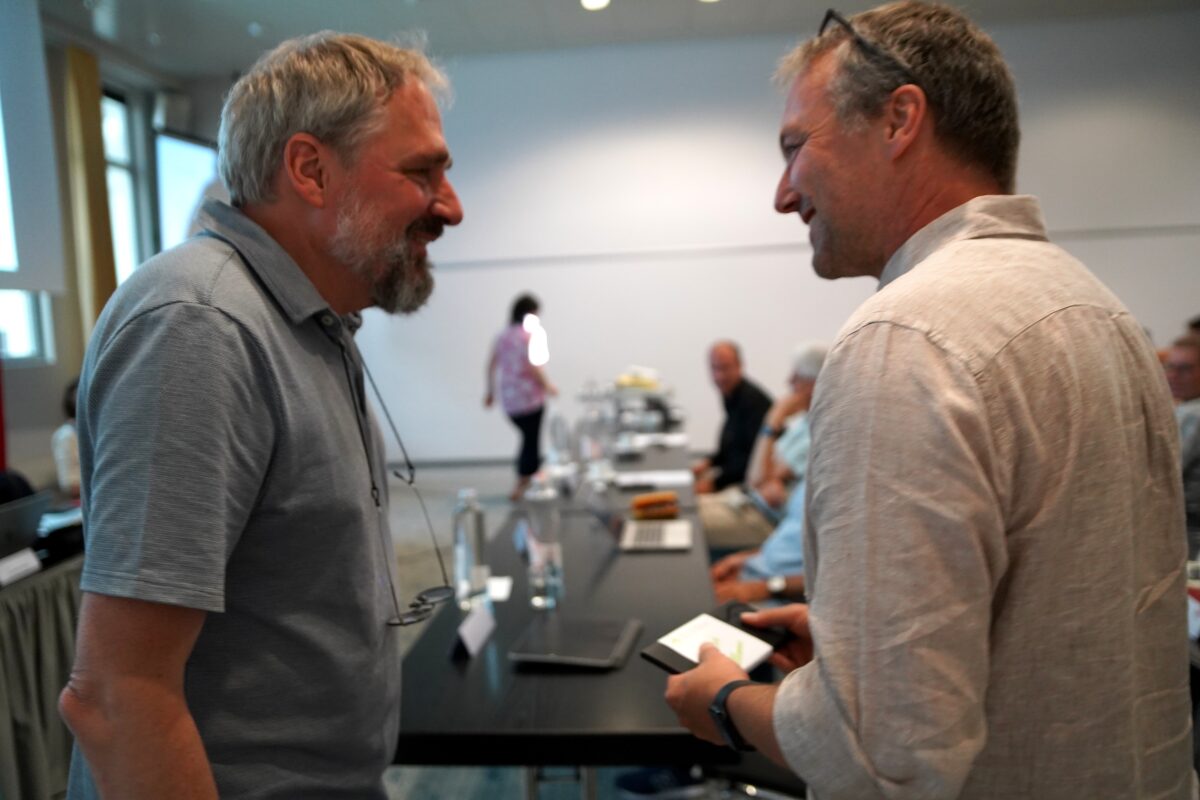Music education and politics: a chronicle
The story of how music education was given its own article in the Federal Constitution reads like a thriller. A thriller with highs and lows, with tough passages, but also with an ode to strong relationships between associations.
In the fall of 2012, the music scene in Switzerland cheered - the people and the cantons had approved the "jugend+musik" initiative with an overwhelming majority. "An absolutely brilliant result," says Christine Bouvard, who as former VMS President was at the forefront of the referendum campaign and implementation work. She has just published a chronicle on behalf of the VMS that records the most important stages. "We were all very touched," she says, "and yet it was clear to us that the work was only just beginning." The following is an excerpt of the most important stages.
2008: Popular initiative "Youth and Music" is submitted
More than twenty Swiss music associations are joining forces and developing the initiative text with a politically broad-based committee - with the aim of promoting music education in Switzerland. The demands cover the following areas:
- Broad-based promotionEqual opportunities and secure access to music education for all children and young people in schools, music schools and the amateur sector
- Basic funding: High quality of music education up to and including tertiary level
- Talent development: Promoting young musical talent as part of a national concept
The initiative is submitted with over 150,000 signatures. There is an initial setback: the Federal Council and Parliament do not agree with the intervention in the cantons' competence in matters of education.
2012: Counter-proposal from the federal government
The Federal Council is in favor of a counter-proposal. The initiative committee weighs up the options carefully and ultimately decides to withdraw the popular initiative - in the hope that it will be implemented in line with the original demands.
23.9.2012: Three quarters say yes!
The federal government's counter-proposal on music education is adopted with 72.7%. The associations allow themselves to celebrate - in the knowledge that this is only a first milestone.
2018: Broad-based promotion with "Youth and Music"
With the "Youth and Music" program, the federal government is laying the foundation for broad-based promotion. In addition, Article 12a of the Culture Promotion Act is intended to regulate the fees charged by music schools. The second point is viewed very critically by the music associations because, among other things, it fails to achieve the original goal of harmonizing public funding throughout Switzerland. An initial evaluation carried out by the BAK in 2019 gives the "Youth and Music" program a good report card, while the tariff system and Article 12a are judged to be unsuccessful. 40% of the music school directors surveyed (BAK survey of all VMS music schools) state that access to their music school is not equitable.
2022: Promoting talent with "Young talents in music"
In mid-2022, the BAK will launch the framework concept for "Young Talents in Music". It defines the content and formal requirements for talented musicians and regulates the financial support that the federal government distributes to the cantons.
Basic funding: What's next?
The Federal Council leaves the implementation of Article 67a of the Federal Constitution on basic funding (paragraph 2) entirely to the cantons. Unfortunately, ten years after the vote, no significant changes are yet apparent. In the consultation on the 2025 - 2028 Culture Dispatch, the VMS is proposing a round table with all relevant music associations, the Confederation and the EDK.
After completing her work on the chronicle (available for download on the website), Christine Bouvard is left with one memory above all: the solidarity between the associations. "It was a closing of ranks for a common cause," she says. In view of the fact that the original goals s not yet been achieved, particularly in the implementation of Article 67a, paragraph 2, she adds: "Political work is not like a construction project - it is always evolving, it goes one step forward, sometimes one step back." She wishes the presidents of the music associations continued courage and perseverance in their commitment to music education in Switzerland.








